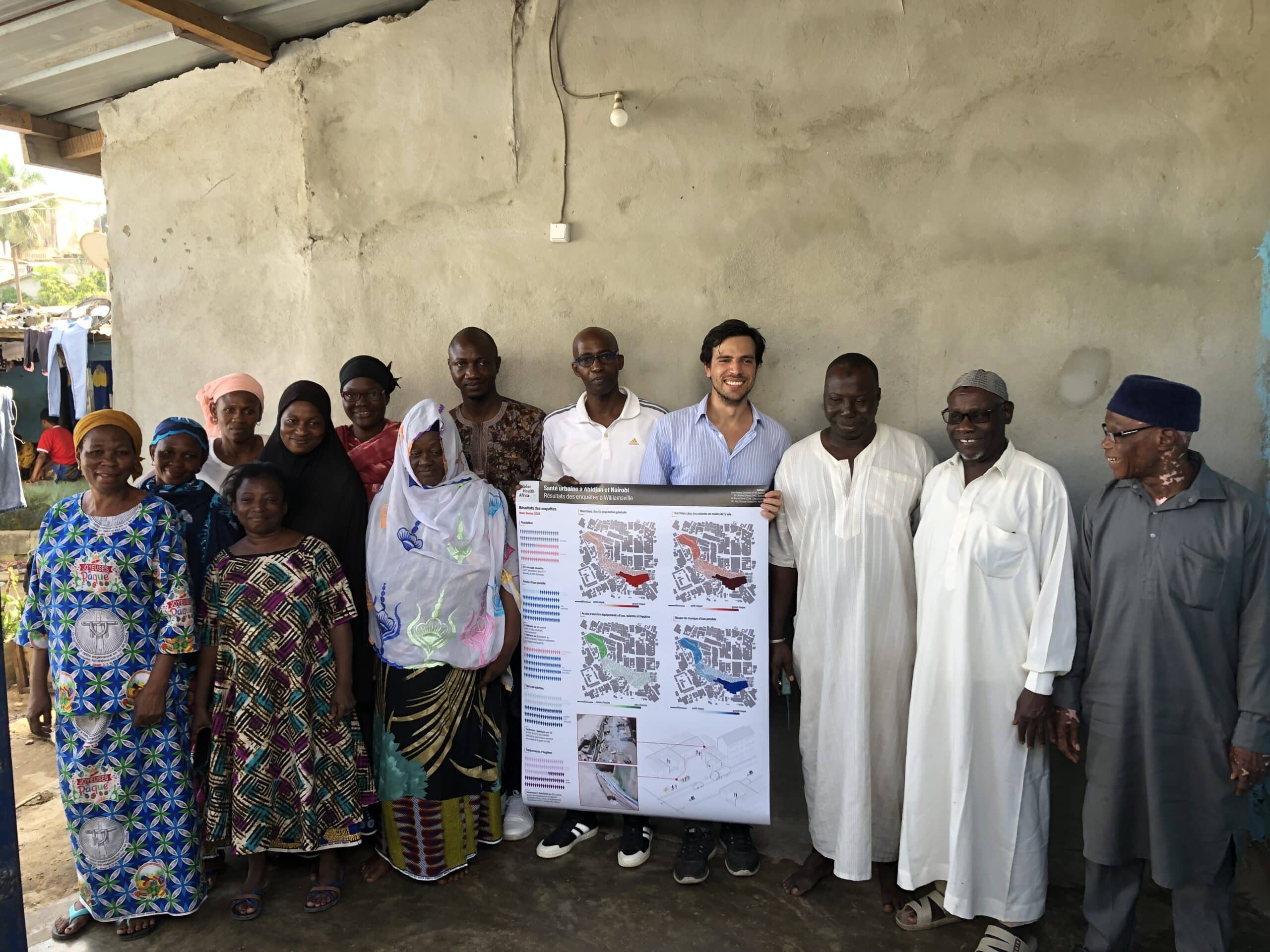Congratulations to Vitor Pessoa Colombo for Successfully Defending His PhD!
Congratulations to Vitor Pessoa Colombo for Successfully Defending His PhD!

Vitor Pessoa Colombo successfully defended his doctoral thesis at the EPFL campus in Ecublens (Vaud)
It is our great pleasure to announce that EPFL candidate Vitor Pessoa Colombo successfully defended his dissertation on 22 September 2023. Pessoa Coloombo’s defense marked the successful endpoint of years of research. It was attended by his thesis supervisors Jérôme Chenal (EPFL-CEAT) and Jürg Utzinger (SwissTPH) as well as his friends and family. This makes Vitor the second doctoral student from our project team to complete his research. We congratulate him warmly and wish him all the best for his future career!
Pessoa Colombo’s thesis is titled “Relating Health Benefits of Water, Sanitation, and Hygiene Services with the Context of Urban Informal Settlements: Lessons from Côte d’Ivoire and Kenya.” It contributes to recent scholarship on urban planning and public health in sub-Saharan African cities, characterised by rapid urban growth, informal settlements, and the emergence of various diseases. For more details, please find the abstract below.
Abstract
This thesis is inscribed in the recent efforts to reconnect urban planning and public health. It focused on the context of sub-Saharan African cities, for they offer invaluable lessons regarding environmental health determinants and potential solutions to address rapidly growing urban areas characterized by a high prevalence of “informal” settlements. A major concern is that living environments in these areas often exacerbate the risk of several diseases. We addressed these health inequities from a spatial perspective, investigating how material deprivations that typically affect informal settlements and shape their built environment relate to the effectiveness of water, sanitation, and hygiene (WASH) services in these vulnerable settings. Diarrhea was the health outcome of interest, as it is directly related to the quality and accessibility of such services. Moreover, it remains among the leading causes of death worldwide, especially in sub-Saharan Africa.
This thesis is inscribed in the recent efforts to reconnect urban planning and public health. It focused on the context of sub-Saharan African cities, for they offer invaluable lessons regarding environmental health determinants and potential solutions to address rapidly growing urban areas characterized by a high prevalence of “informal” settlements. A major concern is that living environments in these areas often exacerbate the risk of several diseases. We addressed these health inequities from a spatial perspective, investigating how material deprivations that typically affect informal settlements and shape their built environment relate to the effectiveness of water, sanitation, and hygiene (WASH) services in these vulnerable settings. Diarrhea was the health outcome of interest, as it is directly related to the quality and accessibility of such services. Moreover, it remains among the leading causes of death worldwide, especially in sub-Saharan Africa.
The overarching goal of this study was to understand, in the context of informal settlements in two African countries, how the performance of different WASH facilities (measured by the occurrence of diarrhea and continuity of access to such services) related to the place where they were inserted. Hence, the thesis contextualized WASH facilities by looking beyond the single object, under the hypothesis that their sole availability is not enough to prevent diarrhea in informal settlements, as certain characteristics of their built environments are, per se, risk factors, and affect the accessibility to WASH facilities.
Multi-level analyses were conducted at: (i) a broader geographic scale based on secondary datasets; and (ii) a local geographic scale based on primary datasets. In this way, the study critically confronted observations of large-scale analyses (resulting from low-resolution, aggregated data) to more detailed observations (resulting from high-resolution, primary data collected at the individual level). The study focused on sites in Côte d’Ivoire and Kenya, two countries affected by significant challenges regarding the expansion of WASH services in low-income urban areas and by a high burden of diarrheal diseases.
We obtained secondary data from 9686 households in Côte d’Ivoire, and primary data from 1147 households in Nairobi, and 567 in Abidjan. The results suggest that the accessibility and health benefits of WASH facilities in informal settlements are interrelated with the form and composition of the built environment at different scales, from the single housing conditions to the spatial configurations of the neighborhood. Ultimately, this study provides empirical knowledge suggesting that “unconventional” WASH solutions already implemented in informal settlements might be viable alternatives to expand, in the short term, the coverage of these essential services. Also, the study highlights the need to consider the built environment as a potential risk factor for diarrhea, as well as a key parameter to determine the most suitable WASH facility type. More generally, the findings contribute to advancements toward SDGs 3 (good health and well-being), 6 (clean water and sanitation), and 11 (sustainable cities and communities).
Keywords
Diarrhea, Informal settlements, Urban infrastructures, Urban Morphology, Water Sanitation and Hygiene, WASH, sub-Saharan Africa, Côte d’Ivoire, Kenya






